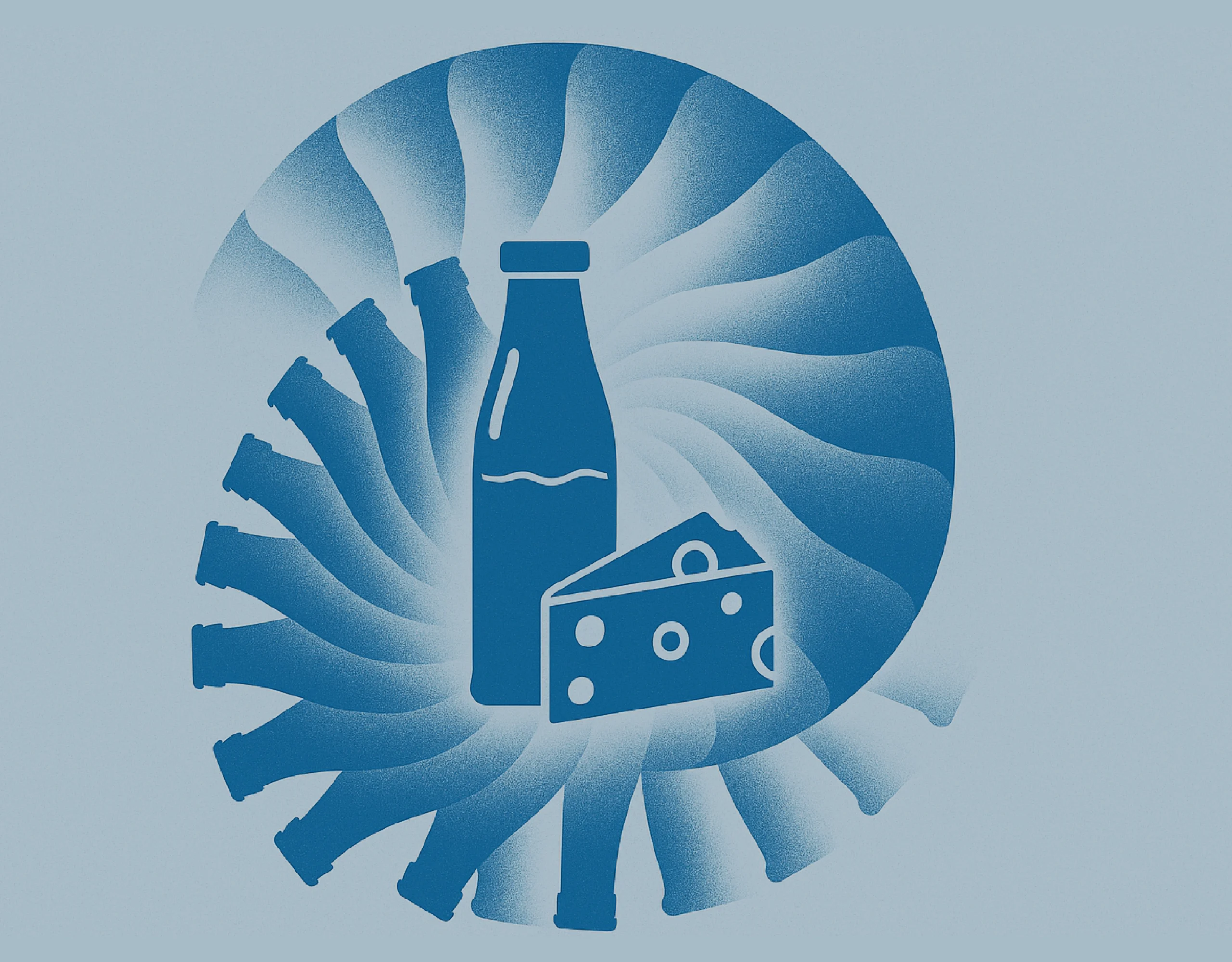Sustainability is not just a trendy catchphrase, it’s becoming the backbone of corporate accountability and operational strategy, especially in the Food and Beverage (F&B) industry. As we approach 2026, new environmental legislation, investor expectations, and conscious consumers are reshaping how F&B businesses operate.
To stay competitive and compliant, the F&B sector must embrace sustainable digital transformation, which strategically integrates technology and sustainability to redefine value creation. It’s not just the promise of efficiency that makes this transformation urgent today, it’s the regulatory pressure and the need for long-term resilience.
The regulatory shift: What’s coming in 2025/26?
Governments and international bodies are tightening environmental policies that will directly impact how F&B businesses operate. Here are a few key developments that should be on every organization’s radar:
- EU green deal & farm to fork strategy: Targets a 50% reduction in the use of chemical pesticides and 20% reduction in fertilizer use by 2030, with intermediate compliance checkpoints from 2025 onwards.
- Corporate Sustainability Reporting Directive (CSRD): Companies in the EU, including those exporting to it, must disclose environmental impact data with high transparency.
- Mandatory scope 3 emissions reporting: F&B companies will need systems in place to monitor supply chain emissions.
- Green Public Procurement (GPP) policies: Businesses bidding for public contracts will be evaluated on sustainability performance.
These regulations require systemic change enabled by digital infrastructure.
Why the F&B industry is under the sustainability microscope
The F&B sector plays a major role in global greenhouse gas emissions, water consumption, and waste production. This increasingly draws scrutiny from regulatory bodies. Key areas of concern include packaging waste and its recyclability, energy use across production and logistics, transparency within the supply chain, and the ethical sourcing and traceability of ingredients. Digital transformation can address these challenges, enabling real-time tracking, predictive analytics, automation, and more informed decision-making.
The competitive advantage of sustainability
Sustainable digital transformation refers to the implementation of technologies that not only improve operational efficiency but also reduce environmental impact. For F&B companies, this means:
- Automating resource-intensive processes
- Enabling data-driven sustainability reporting
- Reducing waste and energy usage through smart systems
- Supporting traceability from farm to shelf
However, sustainability isn’t just about risk mitigation, it’s about creating long-term value. Besides regulatory compliance, sustainable digital transformation delivers strategic advantages:
- Brand differentiation: Meeting sustainability expectations can strengthen brand loyalty.
- Investor confidence: ESG transparency appeals to institutional investors.
- Operational efficiency: Lower energy and material costs drive profitability.
- Market access: Compliance with international regulations opens up new markets.
Fortude’s Digital Transformation Advisory practice is built to align these outcomes with organizational goals.
Fortude’s three-pronged digital transformation approach
1. Strategy: Embedding sustainability at the core
At Fortude, we design transformation strategies that are both outcome-driven and sustainable. Our six-dimensional framework considers:
- Customer: Aligning sustainable operations with evolving consumer expectations
- Business strategy: Ensuring digital strategy reinforces business goals for long-term sustainability
- Technology: Leveraging cloud, AI, and analytics for efficiency and achieving ESG objectives
- Operations: Optimizing processes to reduce waste and emissions
- People & organization: Driving cultural change for greener practices
- Data: Creating reliable ESG data pipelines for compliance
2. Governance: Staying compliant and agile
Fortude helps F&B businesses set up governance structures that support both digital and sustainability goals. Key enablers include:
- Project & program management aligned with sustainability KPIs
- Organizational Change Management (OCM) to foster eco-conscious teams
- Cybersecurity to protect sensitive ESG data
- Delivery assurance to keep sustainability initiatives on track
Strong governance ensures that sustainability is not a one-off initiative, but a continuous, organization-wide commitment.
3. Delivery: Turning strategy into scalable execution
Fortude delivers industry-specific digital solutions that make sustainability goals tangible. We partner with platforms like Microsoft Sustainability Manager on Azure, which helps F&B companies track carbon emissions, water usage, and waste through an integrated data platform.
Other areas of impact include:
- Green procurement automation to vet vendors based on environmental criteria
- Smart warehousing and logistics to optimize energy usage
- IoT-based quality monitoring to reduce spoilage and waste
It’s now or never for sustainable transformation
The clock is ticking for F&B businesses. Regulatory deadlines are fast approaching, and the industry is under scrutiny. But with the right digital transformation strategy, sustainability can be a driver of innovation, growth, and resilience.
At Fortude, we help F&B enterprises translate policy into progress. Our integrated approach ensures that digital investments not only meet compliance but unlock long-term business value.
Ready to lead the sustainable future of food?
Explore Fortude’s Digital Transformation Advisory Services.FAQs
There are a variety of digital tools designed to help food and beverage companies meet their sustainability goals. Platforms like Microsoft Sustainability Manager on Azure allow businesses to monitor, analyze, and report on sustainability metrics. Green procurement platforms enable businesses to assess and select suppliers based on sustainability criteria. IoT-based monitoring systems can identify performance gaps, collect and analyze data, and get actionable insights. Additionally, supply chain analytics platforms offer visibility into the environmental impact of sourcing and logistics.
Smaller F&B businesses can start preparing for upcoming sustainability regulations by taking a phased, pragmatic approach. First, it’s important to invest in digital tools that are scalable and adaptable to future growth and regulatory changes. Second, businesses should begin to map their current environmental footprint and align operations with sustainability goals. Partnering with experts like Fortude can help develop a right-sized digital transformation strategy that aligns with both regulatory requirements and business realities, ensuring compliance without overextending resources.
Fortude’sValue Creation Framework, ensures every strategy and initiative is outcome-driven and delivers against at least one of our seven value creation principles. Enabled by our holistic six-dimensional approach, transformation goes beyond technology adoption to how organizations deliver value to customers, align digital and business goals, optimize operations, build a future-ready culture, and harness data-driven insights. Backed by robust delivery capabilities, we ensure transformations are executed efficiently and create sustained business value.
Environmental, Social, and Governance (ESG) reporting is increasingly becoming a regulatory and stakeholder expectation, particularly under frameworks like the Corporate Sustainability Reporting Directive (CSRD). Digital transformation plays a vital role in enabling businesses to meet these expectations by automating the collection, validation, and reporting of ESG data. Digital platforms integrate data from across operations, energy use, carbon emissions, waste, labor practices, and governance metrics, providing real-time visibility and traceability.
- The regulatory shift: What’s coming in 2025/26?
- Why the F&B industry is under the sustainability microscope
- The competitive advantage of sustainability
- Fortude’s three-pronged digital transformation approach
- It’s now or never for sustainable transformation
- Ready to lead the sustainable future of food?
- FAQs
Subscribe to our blog to know all the things we do


